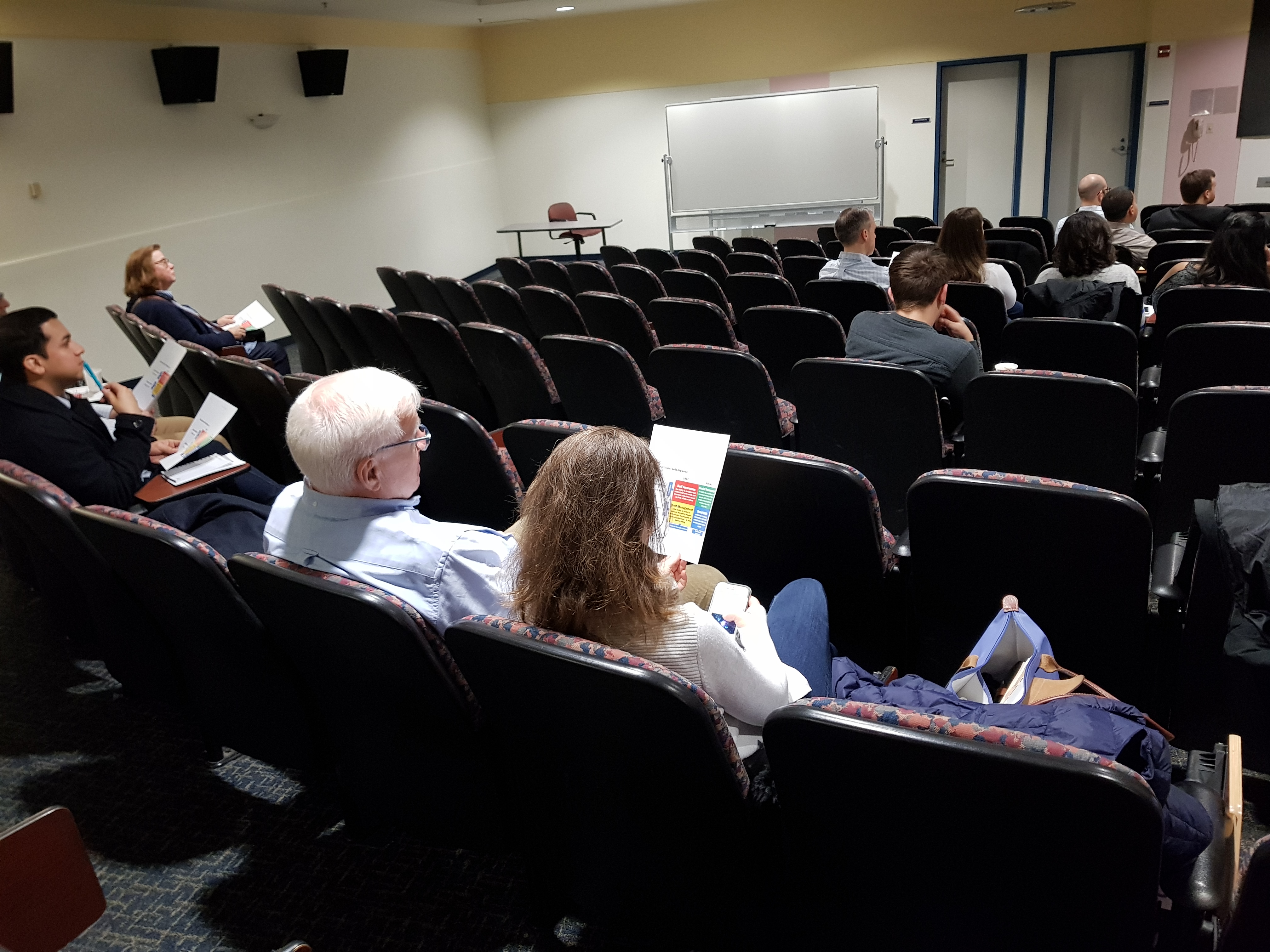Bored and stressed, US workers hit by shutdown head back to school
The one-day event was organized by the School of Public Affairs at American University and billed as a chance to engage in free learning and networking opportunties (Cyril JULIEN)
Washington (AFP) – Hundreds of US federal workers on unpaid leave since the start of the shutdown found themselves back in college Tuesday where they signed up for a diverse range of classes ranging from “Starting a Podcast” to “Dealing with Change.”
The one-day event was organized by the School of Public Affairs at American University and billed as a chance to engage in free learning and networking opportunities.
But for many of the 550 people who signed up, it was a welcome opportunity to tackle the boredom and stress they have been facing since a budgetary impasse over a border wall sought by President Donald Trump but opposed by Democrats forced the partial closure of the government on December 22.
Some 800,000 workers have been affected, forced either to stay at home or work without pay until the government is funded.
“My wife was very happy to get me out of the house,” quipped Adam Santo, a senior official in the US Department of Commerce.
“I do childcare for my daughter, take care of the house making dinner, the laundry,” he said of the three weeks he has now spent at home.
For Matthew Garlipp, who lives in the capital Washington and works for the Treasury Department, there has been one major upside: “My dog really appreciates the extra time with me!”
But, he continued: “The point of being here is pretty much to have something to put on the schedule.”
“It’s a beautiful opportunity to get out of the apartment, learn a little bit,” the 28-year-old added.
“I’d just like to get back to work.”
Behind the boredom and the jokes, however, there is a real fear about the financial consequences of the shutdown, which has deprived them of their salaries as the bills pile up.
– ‘Demoralizing’ –
“The most challenging part at this moment is not knowing what is ahead and how long it is going to last,” said Marcela Trask, who works for the Department of Agriculture.
She considers herself “lucky” because her husband doesn’t work in the public sector and they can manage for the moment on one salary.
If things continue much longer, she said, “We’ll have to spend our savings to cover our mortgage and childcare costs.”
Melinda Batson, a 44-year-old single mother who works for the Food and Drug Administration, is something of a veteran of shutdowns: her first was in 2013 and lasted 16 days, under the administration of former president Barack Obama.
“I would be a fool to say I’m not worried,” she said. “I have spoken to my landlord and credit card companies, so far they have been lenient, but again you are still obligated to pay what you owe.”
On Tuesday, she participated in a “workplace mindfulness” class. “It is really helpful to deal with my emotions as it is a situation out of my control… I know one day I will go back to work, the problem is when.”
Santo, who took a podcasting course, also lamented what he called a “wasted opportunity,” which he was said ultimately “demoralizing.”
The situation could even begin to turn people away from public service, said Vicky Wilkins, spokeswoman for the School of Public Affairs.
“We see restaurants doing their part, banks, hopefully landlords,” she continued. “We’re a university and we have training and skills that we can bring to show our support.”
Disclaimer: This story is published from a syndicated feed. Siliconeer does not assume any liability for the above story. Validity of the above story is for 7 Days from original date of publishing. Content copyright AFP.


